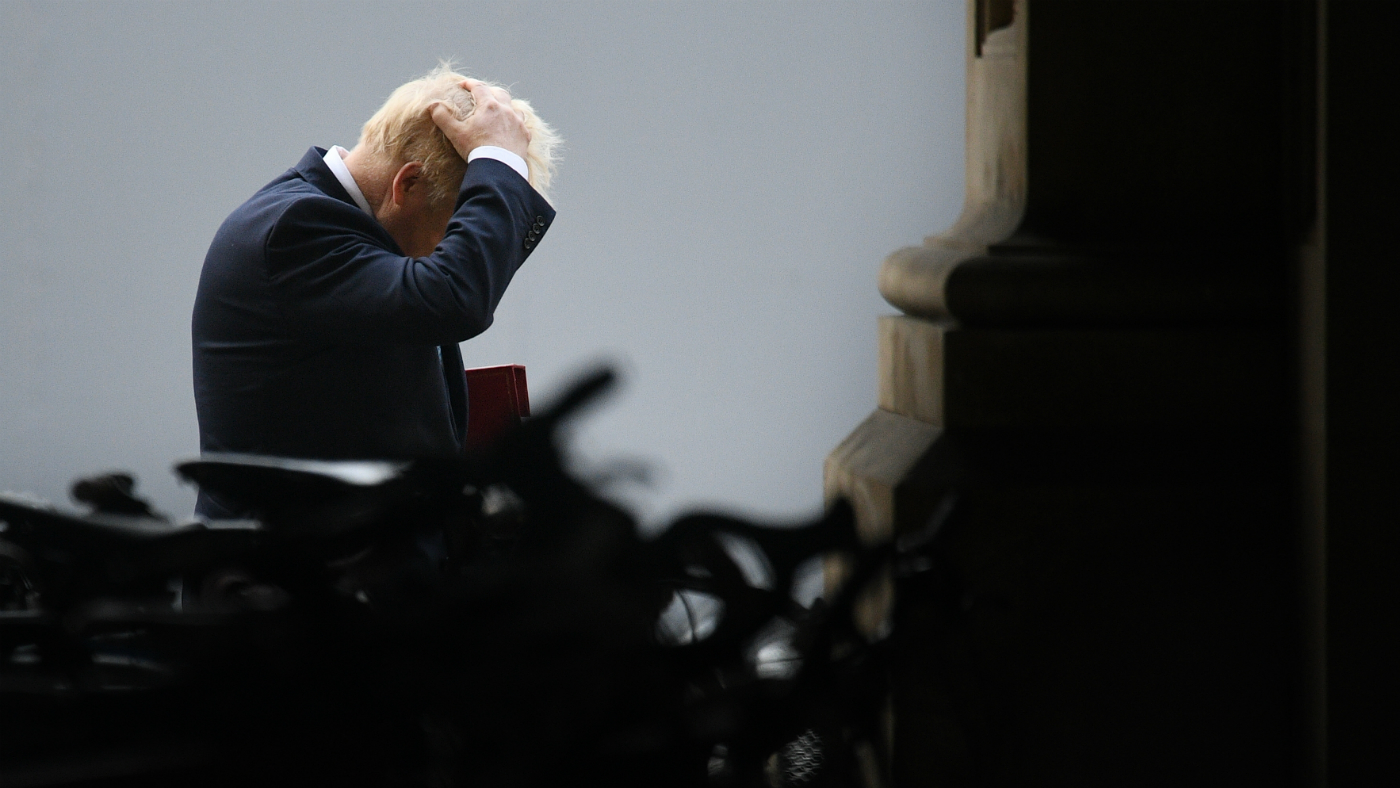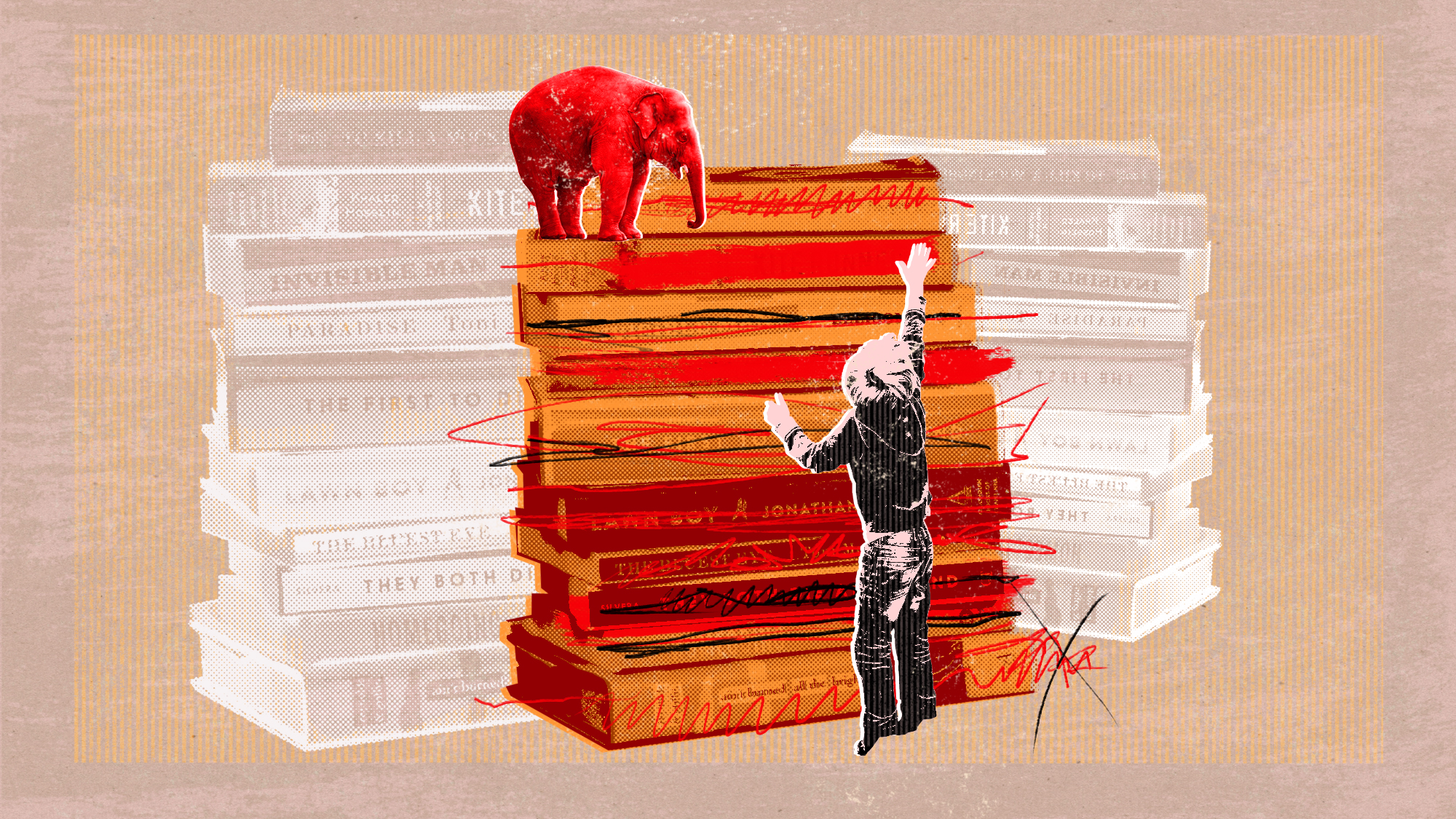Can Boris Johnson recover from wounds of Tory Covid rebellion?
Total of 55 backbench Conservatives vote against tier system in most serious revolt yet against PM

A free daily email with the biggest news stories of the day – and the best features from TheWeek.com
You are now subscribed
Your newsletter sign-up was successful
Boris Johnson suffered the biggest backbench revolt of his leadership last night, when more than 50 Tory MPs voted against the prime minister’s post-lockdown tier system.
With the Keir Starmer whipping Labour to abstain on the vote, there was “no hiding the haemorrhaging taking place on the Tory benches” as the three-tier system was signed off by a margin of 291 to 78, The Telegraph reports.
While Johnson has got his tier scheme over the line, the size of the Conservative rebellion “demonstrates that the prime minister has a job on his hands to maintain support for the regional restrictions”, Sky News adds.
The Week
Escape your echo chamber. Get the facts behind the news, plus analysis from multiple perspectives.

Sign up for The Week's Free Newsletters
From our morning news briefing to a weekly Good News Newsletter, get the best of The Week delivered directly to your inbox.
From our morning news briefing to a weekly Good News Newsletter, get the best of The Week delivered directly to your inbox.
Jeers for tiers
The tier system came into force for England at 00:01 GMT on Wednesday after the Commons backed the plan. But the “nay” voters included 55 Tories, along with all eight DUP MPs, two independents, including Jeremy Corbyn, and 15 Labour MPs who defied the whip.
And although the abstention of the majority of Labour’s MPs “guaranteed No. 10 victory” despite the Tory revolt, it also left Johnson “exposed to the anger of his own benches”, the Daily Mail says.
Sky News’ chief political correspondent Jon Craig reported that MPs in the chamber had told him Johnson was keenly aware of the damage a significant rebellion would cause. The PM was said to have stood at the door of the “aye” lobby “begging” his MPs to vote with the government.
A free daily email with the biggest news stories of the day – and the best features from TheWeek.com
Walking wounded
Johnson’s hefty 80-seat majority should theoretically have given him “the kind of comfortable cushion in the Commons that no prime minister had had since the days of Tony Blair”, writes the BBC’s political editor Laura Kuenssberg. Yet events have “hardly gone according to plan”.
The rebellion comes amid growing “suspicions that MPs are not only being taken for fools by Downing Street but also actively undermined”, The Telegraph reports.
Johnson’s decision to back the tiered post-lockdown plan “reinforced the widely-held notion that the PM has been taken prisoner by Sage scientists at the expense of the livelihoods of those who propelled him to power” almost a year ago, the paper adds.
Johnson has already been hit by a series of backbench rebellions, although the latest stand-off is the most damaging by some margin.
Just last month, he faced down a significant revolt over the implementation of a second nationwide lockdown, with 42 Tory MPs voting against a curfew on pubs. The PM also suffered a smaller revolt in September over his controversial Internal Market Bill, with two Tory MPs voting against and a further 30 abstaining.
Trouble ahead
While “no one in Westminster, Edinburgh, Cardiff or Belfast could claim that handling coronavirus is easy”, last night’s rebellion was a “strong signal that we cannot carry on like this”, says Keunssberg.
A senior Conservative reportedly told her that “the mood is toxic” in the party - fuelling claims that “relations between the backbenches and Downing Street are getting worse, not better”, Keunssberg adds.
The Covid tiers vote was meant to be the start of a reboot of Johnson’s premiership following the departure of controversial senior adviser Dominic Cummings and No. 10 communications director Lee Cain.
But as Christmas approaches, the immediate outlook “appears to offer little cheer” for the PM, says The Telegraph.
The scale of the Tory uprising is a “clear warning that the prime minister’s authority has been badly damaged”, agrees Bloomberg. And “it may also be a sign that four years of Brexit turmoil have left British politics permanently scarred”.
-
 The mystery of flight MH370
The mystery of flight MH370The Explainer In 2014, the passenger plane vanished without trace. Twelve years on, a new operation is under way to find the wreckage of the doomed airliner
-
 5 royally funny cartoons about the former prince Andrew’s arrest
5 royally funny cartoons about the former prince Andrew’s arrestCartoons Artists take on falling from grace, kingly manners, and more
-
 The identical twins derailing a French murder trial
The identical twins derailing a French murder trialUnder The Radar Police are unable to tell which suspect’s DNA is on the weapon
-
 How corrupt is the UK?
How corrupt is the UK?The Explainer Decline in standards ‘risks becoming a defining feature of our political culture’ as Britain falls to lowest ever score on global index
-
 The high street: Britain’s next political battleground?
The high street: Britain’s next political battleground?In the Spotlight Mass closure of shops and influx of organised crime are fuelling voter anger, and offer an opening for Reform UK
-
 The MAGA civil war takes center stage at the Turning Point USA conference
The MAGA civil war takes center stage at the Turning Point USA conferenceIN THE SPOTLIGHT ‘Americafest 2025’ was a who’s who of right-wing heavyweights eager to settle scores and lay claim to the future of MAGA
-
 Is a Reform-Tory pact becoming more likely?
Is a Reform-Tory pact becoming more likely?Today’s Big Question Nigel Farage’s party is ahead in the polls but still falls well short of a Commons majority, while Conservatives are still losing MPs to Reform
-
 What does the fall in net migration mean for the UK?
What does the fall in net migration mean for the UK?Today’s Big Question With Labour and the Tories trying to ‘claim credit’ for lower figures, the ‘underlying picture is far less clear-cut’
-
 Asylum hotels: everything you need to know
Asylum hotels: everything you need to knowThe Explainer Using hotels to house asylum seekers has proved extremely unpopular. Why, and what can the government do about it?
-
 Five takeaways from Plaid Cymru’s historic Caerphilly by-election win
Five takeaways from Plaid Cymru’s historic Caerphilly by-election winThe Explainer The ‘big beasts’ were ‘humbled’ but there was disappointment for second-placed Reform too
-
 The new age of book banning
The new age of book banningThe Explainer How America’s culture wars collided with parents and legislators who want to keep their kids away from ‘dangerous’ ideas